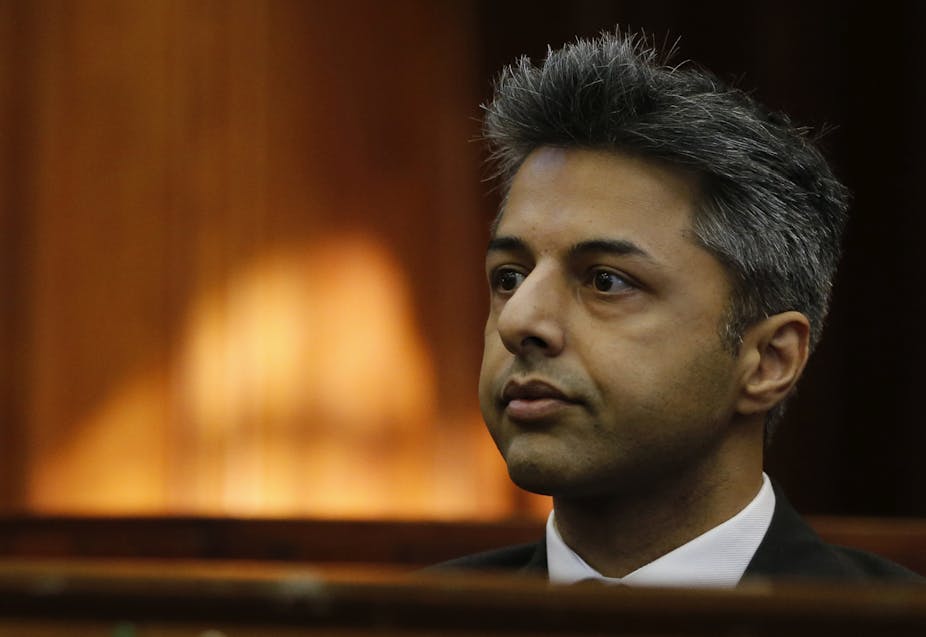The case of Shrien Dewani is a bracing reminder that the media needs to keep a clear head when overwhelmed by the sensationalism of a dramatic murder case – particularly when the events take place in another country.
A judge in a South African court has ruled that there is insufficient evidence to put Dewani on trial for the murder of his wife Anni four years ago. This follows years of rampant speculation in the press about the private lives of everyone involved in the case.
Memory loss?
The fate of Gerry and Kate McCann after the abduction of their daughter Madeleine in Portugal should have been a salutary lesson. But it seems the press are getting no better at upholding the principle that a person is innocent until proven guilty.
The McCanns faced incredible prejudice from the Portuguese media, particularly based around the absurd assumption that there could be a connection between leaving a child unsupervised and being responsible for their disappearance. The British media followed its lead and in the end, had to pay millions in libel damages and costs.
The cost to the McCanns and the ongoing struggle to find out what really happened to their daughter is unquantifiable.
In another high-profile case, retired schoolmaster Christopher Jefferies was relentlessly hounded by the press after his tenant Joanna Yeates was murdered in Bristol.
The actual murderer Vincent Tabak had misled the police and an absurd link was made between Jefferies’ perceived eccentricity and his guilt. The bile and nonsense published attracted libel litigation and criminal contempt prosecution.
The caution so obviously lacking in the coverage of these cases was sorely needed as Dewani’s day in court approached. Bisexuality does not a murderer make.
The detail is gratuitous, entertaining, and perhaps titillating to some but in legal systems with proper due process, a decision has to be made on whether the evidence is prejudicial or probative.
The judge in charge of Dewani’s case decided the former. Much of the world’s media have decided the latter. That which is ruled inadmissible by a court exercising the rule of law becomes fuel for the flames of public opinion.

The British media has been able to feed off the frenetic thunderstorm of speculation and prejudice in the South African press and even the apparent infinity of individual opinion expressed through the potentially trolling social sirens of Twitter, Facebook and other non-professional sources of information.
South African media contempt laws do not extend to British online coverage. Jury trials were abolished in 1969 and in 2007 it was decided that the risk of external reports substantially prejudicing proceedings is low when judges make the decisions.
Sensational murder cases get intense coverage because the drama and salaciousness boosts readership. But some elements of the media failed in this case to analyse the evidence and credibility of the case against the accused. They ran with the story without considering the consequences.
Headlines such as murdered bride Anni Dewani sent ‘five times in one night’ honeymoon sex boast text to cousin in the Daily Mirror and “Shrien Dewani ‘invigorated’ by good hormone levels” in South Africa’s The Citizen are typical of the kind of coverage doing the rounds before a decision on whether to continue the trial was made.
Justice in the dock
South Africa’s legal system has been in the dock over the last year with the eyes, ears and digital lens of the world bearing down on its court rooms. First came the trial of Oscar Pistorius and then the case of Dewani.
Both have been televised but the cameras inside the courts have not added to the media circus outside. They have educated more than they have entertained.
We have learnt that the prosecution has to prove its case beyond reasonable doubt and satisfy a high forensic and evidential threshold. Prosecution witnesses must be credible, consistent and witnesses of truth.
The coverage of proceedings in both cases has revealed that they involve catastrophic and ghastly human events. The actions described in the witness box are grim, pathetic and sad. “Drama” is, more often than not, the wrong word. Stress, misery and wretchedness seem far more apt.
Dewani’s recourse
While media and social media trolls may be immune from the jeopardy of contempt law in commentating about the rights and wrongs of Dewani’s prosecution, libel is still an active remedy.
Dewani may now have cause to pursue a number of cases, particularly if anyone gets carried away with some of the things his wife’s family have said in the wake of the ruling. Their statements outside the Cape Town court carry qualified privilege as a press conference. Advances on what they imply as “the full story”, particularly if reported as fact elsewhere, could attract libel writs in England. The publisher would have to prove the case on the balance of probabilities.
Those who wish to communicate on the basis of ignorance or speculation could find that justice has the potential to run a much longer course in many different dimensions and legal jurisdictions.

